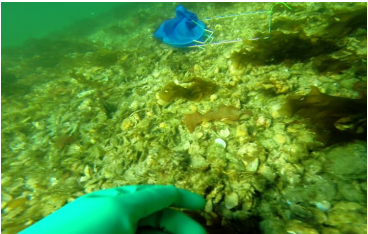Management
The Tasmanian shellfish fishery is managed by NRE Tasmania under the Living Marine Resources Management Act 1995 and Fisheries (Shellfish) Rules 2017. The Shellfish Fishery Policy Document and Shellfish Policy Update 2017 detail the harvest strategy for Venus Clams in Tasmania. Estimated total biomass and size structure are used in the harvest strategy as performance indicators. However, no limit reference points below which the stock would be classified as recruitment overfished are identified.
The Southern Zone has been closed to fishing since 2013. While juveniles were present in biomass surveys in 2013, there was no fishable stock detected. Prolonged rainfall in the Georges Bay Catchment in 2011 resulted in a sudden decline in biomass. During this period low salinity concentrations from high freshwater inflows resulted in extensive mortality of the population. The Venus Clam population is vulnerable to environmental changes. There has been no sign of population recovery in the Southern Zone since the 2013 survey.

Biomass Survey
The Northern Zone has had biomass surveys biennially since 2007. TACC allocation is based on fishery dependent surveys of estimated available biomass conducted by IMAS every two or three years. The TACC set as equal to 10% of the estimated biomass.
Comparison of results obtained from biomass surveys of Venus Clams at Georges Bay coupled with commercial fishery data.
| Year | Catch (tonne; % of TACC) | TACC (tonne) | Fishery Area (m2) | Total Biomass (tonne) | Biomass (Kg per m2) | Density (no./m2) |
|---|---|---|---|---|---|---|
| 2003 | 43.2 | 176,258 | 366.5 | 2.1 | ||
| 2004 | 26.4 | |||||
| 2005 | 26.4 | |||||
| 2006 | 26.4 | |||||
| 2007 | 26.4 | |||||
| 2008 | 24.0 (100) | 24 | ||||
| 2009 | 23.9 (99.6) | 24 | 121,111 | 284.7 | 2.4 | 134 |
| 2010 | 28.4 (99.6) | 28.5 | ||||
| 2011 | 27.8 (97.5) | 28.5 | ||||
| 2012 | 27.8 (97.5) | 28.5 | 121,111 | 537.4 | 4.4 | 198.2 |
| 2013 | 42.2 (78.6) | 53.7 | ||||
| 2014 | 39.9 (74.3) | 53.7 | 96,393 | 463 | 4.8 | 180 |
| 2015 | 24.3 (52.5) | 46.3 | ||||
| 2016 | 0.93 (31) | 3 | ||||
| 2017 | 1.5 (50.0) | 3 | 80,759 | 76.2 | 0.9 | 87.4 |
| 2018 | 2.4 (49.9) | 4.9 | ||||
| 2019 | 2.2 (44.2) | 4.9 | ||||
| 2020 | 0.6 (13.1) | 4.9 | ||||
| 2021 | 0.4 (8.0) | 4.9 | ||||
| 2022 | 0.1 (1.25) | 4.4 | 82,946 | 10.0 | 0.1 | 9.3 |
The recreational catch is considered negligible compared to the commercial catch. There is a combined recreational bag limit for clams, cockles and pipi species.



